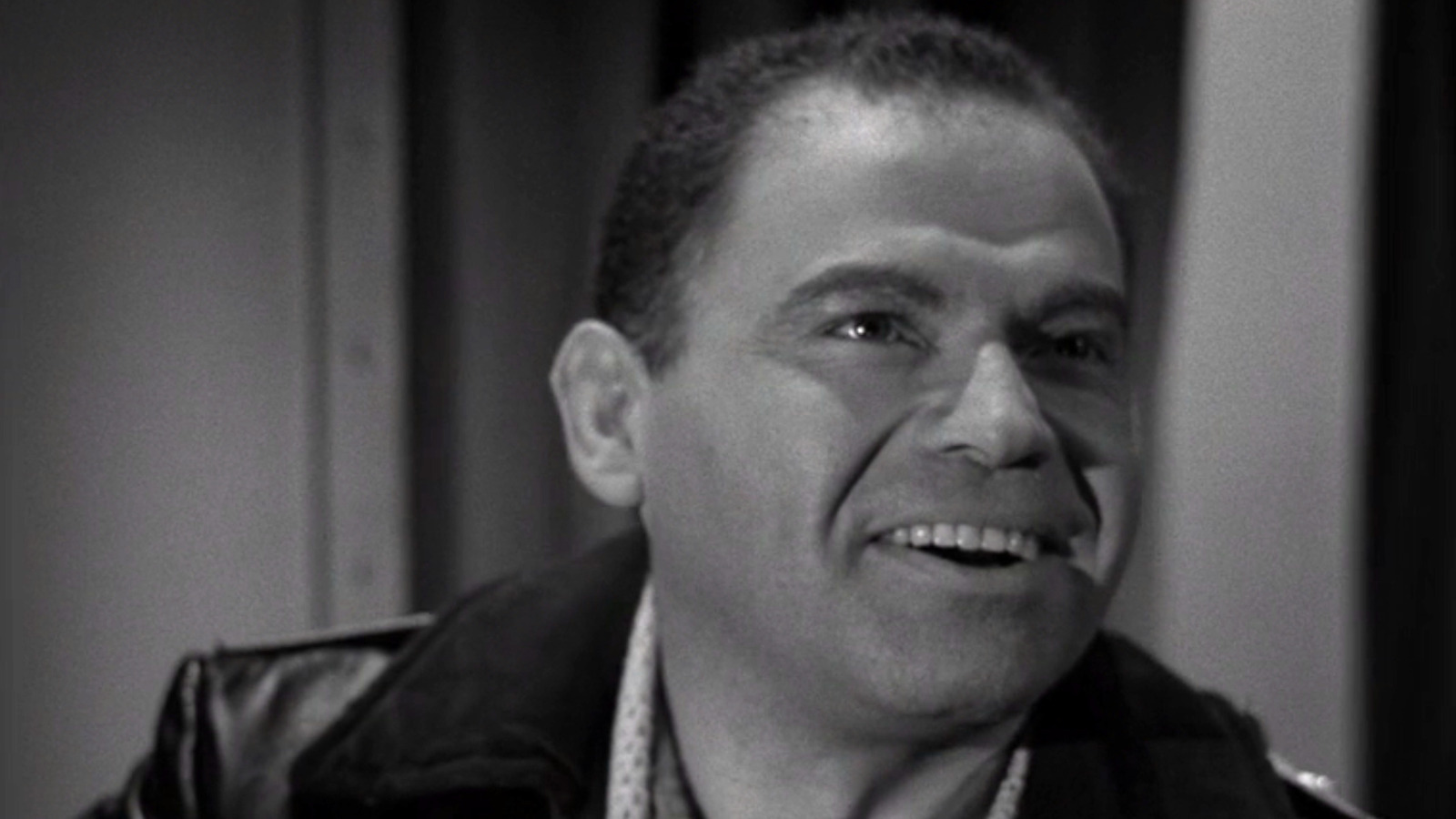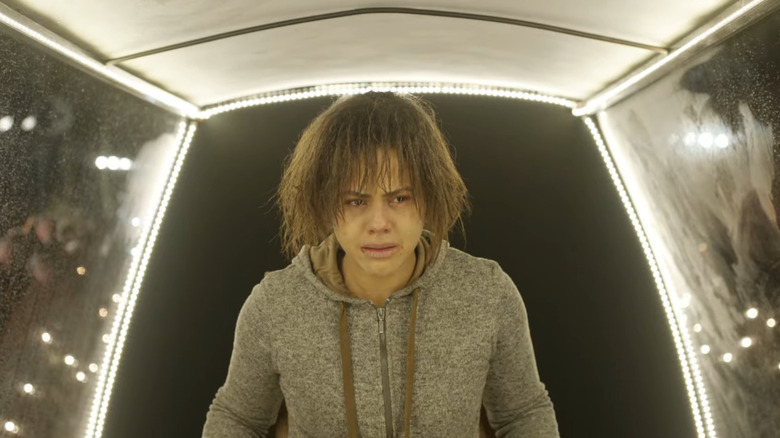something Rod Serling actually hated to do), but it’s still easy to see the connection between the two. Both show use their speculative one-off premises to explore the darker sides of the human psyche, feature a different cast each episode (well, almost, in the case of “Black Mirror”), and are unafraid to end things on a bummer note.
That’s why it’s no surprise that “White Bear,” an absurdly bleak season 2 episode of “Black Mirror,” was at least partially inspired by “Judgment Night,” a dark season 1 episode of “The Twilight Zone.” They’re different enough that most viewers won’t notice, but there’s undeniably a ton of overlap in their themes and plot beats.
To recap, “White Bear” is an episode about a woman who wakes up with amnesia. She finds herself in a world where some people have mentally deteriorated while others have turned into lifeless zombies attached to their phones. After spending most of the episode trying to survive, frustrated by the people standing with their phones instead of helping her, she finds out this is all a ruse (a twist that was a last-minute addition to the episode script). In reality, she’s in a special kind of prison, and she’s now being tortured in a way that poetically matches the crime she committed.
“Judgment Night,” meanwhile, is an episode about a guy with amnesia who finds himself on a British passenger ship in 1942. He then proceeds to panic when he realizes the ship is about to be bombed by German U-Boats, only to realize he’s, quite literally, in Hell. Back when he was alive, he was a U-Boat captain who callously torpedoed a British passenger ship during WWII. As such, his divine punishment is that he’s forced to relive his war crime from the passengers’ perspective every single night, in a loop that goes on for all of eternity.


